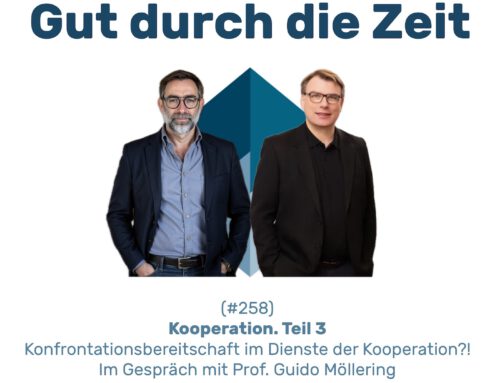INKOVEMA Podcast „Well through time“
#221 GddZ
Sexualised violence and the possibilities of mediation
A method of individual and socially relevant conflict management?
In conversation with Prof Michael Winkler
born 1953 in Vienna; Professor for General Pedagogy and Theory of Social Pedagogy, Institute for Education and Culture, Friedrich Schiller University Jena, many years of experience in reappraisal commissions.
Small series: Contributions from the field of conflict dynamics. Part 5
Contents
Chapter:
0:03 Introduction to the topic of violence
1:33 The path to resilience
4:36 Number of unreported cases and public perception
6:40 Experiences of those affected
9:16 The influence of institutions
11:46 Violence as a phenomenon for society as a whole
14:16 The role of the media
17:12 Mediation as a solution approach
19:52 The need for companionship
22:07 Challenges for those affected
24:29 The silence of the silent ones
25:38 Biographical perspectives
27:36 The role of mediation
34:01 The dialogue with institutions
36:40 Mediators as companions
41:39 Conclusion and outlook
Summary of content
In this episode, I am addressing an extremely sensitive and complex topic: sexualised violence, particularly in relation to the protection of minors. I have invited Professor Dr Michael Winkler, an expert who has worked intensively on this topic for many years, particularly in the context of commissions to come to terms with the past. We will discuss the challenges and opportunities of mediation in this context and explore how we can deal with the deep and emotional scars of those affected.
Professor Winkler explains how he first came into contact with the topic. His experiences date back to the early 2000s, when the first publicly known cases of sexualised violence in institutions, such as schools, came to light. He describes the importance of resilience and the role it plays in overcoming traumatic experiences. Resilience, i.e. the ability to cope with difficult life circumstances, is seen as a decisive factor in dealing with traumatic experiences. Many people who have had such experiences nevertheless find ways to lead a life they consider happy - often with support from outside, be it from family or friends.
The number of unreported cases of sexual violence repeatedly raises the question of why many cases are not publicised. It is critically questioned whether social structures also lead to those affected remaining silent or not being heard. Professor Winkler warns against jeopardising the perception of the issue through simplistic approaches and emphasises that this is a problem for society as a whole and is not limited to certain institutions such as the Catholic Church.
With a focus on the role of mediation, Professor Winkler makes it clear that mediation is not a panacea, but can be a relevant process to offer both those affected and the institutions a way to come to terms and reach an understanding. He emphasises the need for individual approaches: Mediation must take place in the context of the respective life stories and experiences in order to be effective. It is not just a matter of naming the injustices suffered, but also of offering those affected ongoing support and guidance.
A central concern in our dialogue is the need for comprehensive aftercare for those affected. They are often left alone after their testimony and the public discussion. A mediation process should therefore also include emotional and psychological support in order to prevent the experiences from having a re-traumatising effect.
The discussion finally leads to the role of mediators in this specific area. Professor Winkler calls for a new approach to mediation: instead of a classic conflict resolution between two equal parties, we need empathetic and partial support that focuses on the individual trauma perspective and the associated effects. Mediators should be open to the specific realities of the lives of those affected and position themselves as supporters who create the space for personal understanding and self-reflection.
This in-depth reflection on the interplay between trauma, resilience and the challenges of institutions emphasises the importance of approaching this topic. We clarify the role of mediation and its potential to shed light on one of the darkest corners of our society and make a lasting contribution to offering victims a voice and support.





Leave A Comment